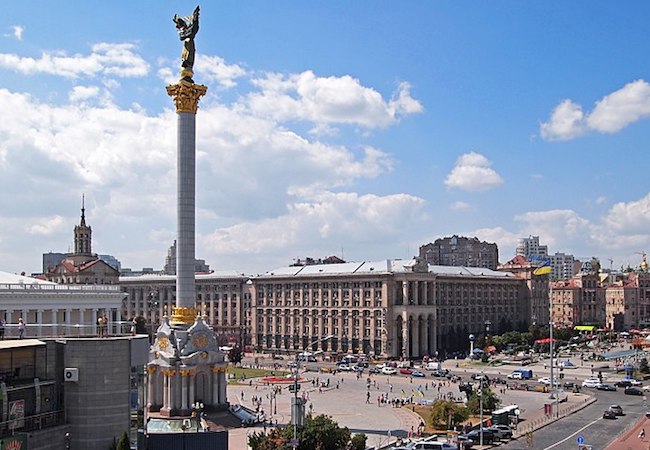
This past November, Ukraine’s parliament took its first steps to reverse an almost two-decade old regulation barring its citizens from selling farmland or changing agricultural land usage. Initially designed as a temporary moratorium on land sales, this regulation has de facto metastasized as one of the most significant obstacles for Ukraine economically, socially or politically. In order for Ukraine to properly evolve into a modern and free liberal state Kyiv must embrace free market principles and secure the private property rights of its citizens.
Land reform has been an ongoing debate since the collapse of the Soviet Union in 1991. During Ukraine’s post-Soviet reform period, initial legislative packages transferred state held land to rural farmers and collective non-state agricultural entities. Known as Collective Agricultural Enterprises (CAEs) these groups represented private landowners that each held certificates to specific plots of land that could be withdrawn from the collective. Using this approach, by 1999 around 6 million Ukrainians held private land shares with about 25% of agricultural land still belonging to state entities.
It is important to fathom the impact of socialist and communist pathologies that can persist not only in places like Ukraine or other formerly Soviet nations but with a multitude of formerly authoritarian countries. Although Ukraine secured independence in August of 1991 and the Soviet Union collapsed later that December, Kyiv retained many of the institutionalized political and economic heritages that set the stage for subsequent political and economic reforms of the 1990s and early 2000s. Despite the successes of the 1990s, oligarchic interests and institutionalized Soviet standards threatened Ukraine’s path toward true economic freedom during the turn of the century.
By this time many of the Communist and populist Ukrainian lawmakers pushed to enact the now infamous moratorium on private land sales in 2001. Initially, this package was only designed as a temporary measure until a more comprehensive land reform deal could be passed. Unfortunately, these new reforms never materialized, and the moratorium has been passed by successive administrations ever since.
Understandably, the moratorium was passed with the intention of protecting Ukraine’s valuable land assets and to ensure Ukrainian ownership of Ukrainian property. Despite these agreeable aims, the tool being used rather reverted Ukraine and its farmers to the same socialist paradigm that they were trying to dig themselves out of. Although this moratorium has and continues to directly threaten Ukraine’s economic viability it also exists as a significant obstacle and detriment to Kyiv’s ability to morph into a free, modern and liberal society.
Just at face value the moratorium decreases efficiency in Ukraine’s agricultural sector and eliminates would be economic opportunities for the farmers that currently hold land. To remind, these land regulations bar agricultural landowners from selling their land, placing land as collateral, or otherwise change land uses away from agricultural purposes. At the macro level these laws disincentivize foreign investment in one of Ukraine’s most prized assets and detains middle class and rural landowners into suboptimal leasing agreements with large agribusinesses.
According to The World Bank a lift on the moratorium would increase annual GDP by 1.5% and certainly attract investment that would expand efficiencies and best utilize the 43 million hectares of Ukrainian farmland. By ensuring that individuals have the right to alienate their land, labor and capital markets can best facilitate consensual economic interactions and increase value for both companies and landowners.
More than an economic issue, the moratorium is an attack on Ukrainian human rights. Ukrainians in 2014 made it abundantly clear with the ouster of the Yanukovych regime and the rejection of Russian suzerainty that its citizens wished to realize long awaited dreams of political, economic and social liberties. As it stands, the moratorium on land sales is in direct contravention with these desires and further restricts Ukrainians’ rights of property and self-preservation.
Although Ukraine’s Parliament recently passed a land reform package that would lift the moratorium earlier in November 2019, passage is required at second reading in January 2020 for enactment. Even then, as written, the bill’s items would not take effect until October 2020 with foreign entities unable to purchase land until 2024.
As mentioned, the moratorium was designed with the intention of protecting vulnerable Ukrainian landowners—these include elderly owners as well as owners with small holdings. Although its structure and theoretical framework are severely ill-informed, its intentions have earned impressive support across Ukraine. On December 17, 2019 supporters of the moratorium clashed with police outside parliament, sending two officers to the hospital.
Clearly a “shock therapy” transition to a completely liberal land market is infeasible both politically and economically. The fear of corporate or foreign takeover of millions of hectares of land is a palpable concern that has and may continue to animate Ukrainians. Along with the aforementioned provisions of the current land reform bill waiting second reading, programs should be enacted that provide financing for small landowners allowing them greater opportunities to both retain and invest in their holdings if they so choose. Although the inclusion of liberal, market-based reforms has historically led to greater prosperity and wealth, the expectations in Ukraine should be tempered with a balanced approach that can both expand economic opportunity while also protecting middle class and rural interests. Only then can Ukraine benefit from the opportunities that currently lay dormant and realize its place as a free and liberal member of Europe.




